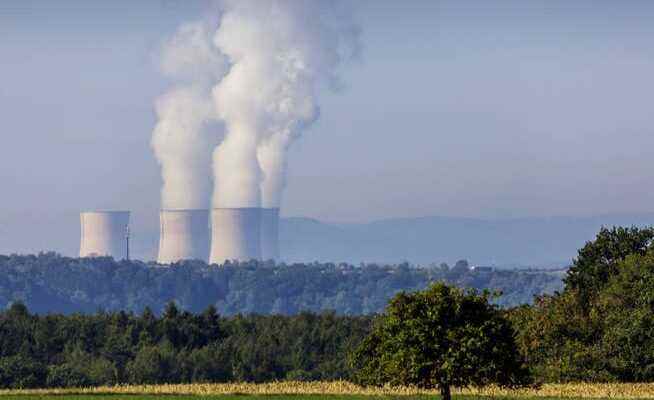Nuclear power and gas will be considered sustainable in the EU in the future. The EU Commission prevailed. But the exercise of dividing the economy into sustainable or unsustainable remains a bureaucratic nightmare. The EU would have the decisive instrument to be a role model in climate protection.
The practically CO2-free nuclear power will be considered sustainable in the future in the EU. In the picture the nuclear power plant Cattenom in France.
«Should sustainable products be included in your investments if possible?» Starting in August, every investor in the EU will be confronted with this question by their bank advisor. It’s nice if the adviser doesn’t also ask if you separate the rubbish properly at home. It is another paternalistic encroachment on economic freedom that disrupts the consultation process.
Of course, bankers and their customers should be able to speak freely and frankly about these topics – but the state should not impose such discussions. People also have very different views of what is sustainable.
Fodder for lobbyists
This is exactly what a bitter dispute between the EU Commission and parts of the EU Parliament and the member states has shown in recent weeks. After all, what do bankers base themselves on when they propose a sustainable investment product? In the future, according to the Commission’s idea, the “taxonomy” should set the direction, a bundle of thousands of pages that divides economic activities into sustainable or non-sustainable.
The fact that the EU Commission also classified nuclear power and gas-fired power plants as sustainable under certain conditions caused a stir. There was strong opposition from environmental groups. On Wednesday, the EU Parliament followed the Commission on this question, but the absolute majority was not reached to shoot down the proposal.
That’s a good thing, because the taxonomy at least doesn’t unduly restrict the investment decisions for these power sources. Nuclear power is practically CO2-free and can therefore make an important contribution to the decarbonization of the economy – thinks France, for example. Last year, Poland produced three quarters of its electricity with coal – replacing it with natural gas would be a step forward. It’s not a victory for Putin either, as EU countries are already trying to get away from Russian gas quickly.
The EU Parliament’s decision was not about ending the whole project. So it stays with the lists of all economic activities that are classified as sustainable or not. That belongs more in a planned economy than in a market economy. Such lists are also fodder for lobbyists who want to see their industry included. After all, there is also a lot of money at stake, as the EU will base its funding criteria on the taxonomy.
With emissions trading, the EU could be a role model
There is a great danger that the financial industry will also lean back. Why shape your own sustainability criteria when the EU does it for you? The fact that there have been different labels on the market is not a market failure, but reflects that sustainability can be understood in different ways. Anyone who cheats with information about sustainable investments must also reckon with the resentment of consumer protection groups and the media or answer for unfair competition. No EU taxonomy is needed for this.
The EU is backing the wrong horse in environmental policy. Parliament recently made a decision that has practically disappeared, but at least points in the right direction. It should also be used for traffic and heating emissions trading over time give, like today for the industry. This is where the EU institutions would have to put all their ambition into it. Emissions trading covering all areas would ultimately be the most efficient way to reduce CO2 to reduce. But according to the current timetable, it will be many years before the time comes.
Instead, the second and third stages of the taxonomy are now waiting for the advisors and their clients: The EU also wants to clarify what is social and what characterizes good governance. This increases the effort and bureaucracy. The arrogance in environmental policy continues.
